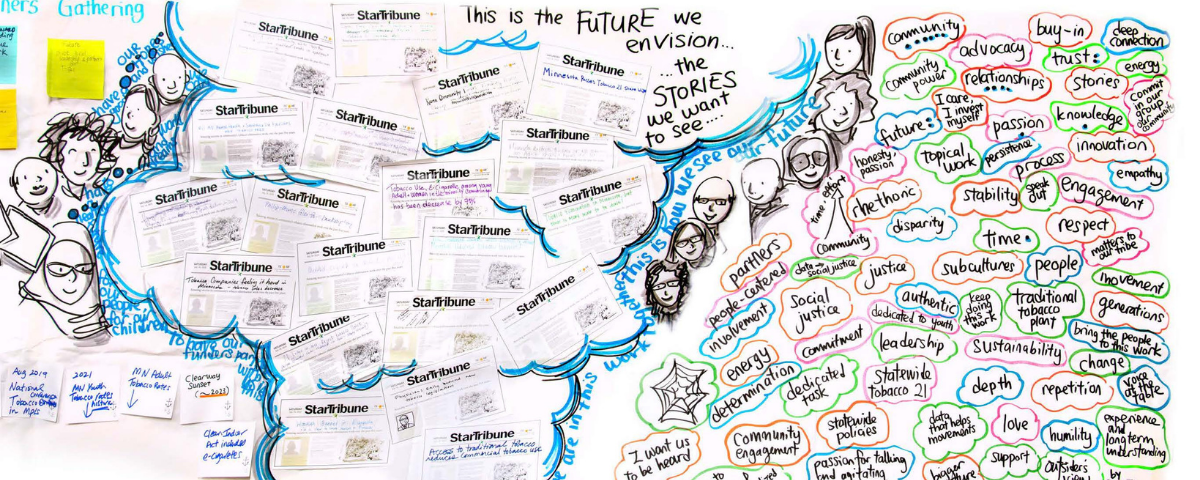
A multi-year evaluation of community-based commercial tobacco prevention and cessation efforts illustrates the importance of relationships.
CONTEXT
While smoking rates among Minnesotans have been declining for years, the decrease is not universal.— Particularly, communities of color continue to experience disparities in smoking and related diseases. These health inequities stem from cultural/social norms around commercial tobacco use; the targeting of these communities by the commercial tobacco industry through misinformation and predatory marketing tactics; and a lack of funding for commercial tobacco prevention and control efforts—especially culturally specific approaches. In response, Blue Cross launched Communities Eliminating Tobacco Inequities (CETI) initiative, which aimed to reduce commercial tobacco use in communities experiencing disparities by supporting community-driven, culturally specific efforts that raise awareness, shift norms, and influence policy. Funded organizations worked within Karen, Lao, Latinx, Somali, African American, and American Indian communities, as well as with people living with mental illness and substance use disorders. The Improve Group served as the evaluation partner to Blue Cross and these organizations from 2015 to 2018.
IG’s CONTRIBUTION
We took a unique approach to this evaluation, combining our overall summative evaluation of CETI with technical assistance (TA) to each community organization.
Flexibility was a key characteristic of Blue Cross’ approach to this work—organizations could define success within the context of their own communities, for example, rather than trying to fit a prescribed definition. Similarly, we supported each organization to develop its own evaluation plan, and then offered additional TA for carrying out evaluation activities.
For our evaluation of the CETI initiative, we used interviews, surveys, meeting participation, observations, focus groups, and summary data to measure the impact of organizations’ work. To reflect the spirit of the project, we adapted tools and specific deadlines to fit the context of the funded organizations to capture as much of their work in each year as possible. We also helped ensure that data collection methods were culturally responsive by engaging organizations to translate and conduct focus groups in their own languages.
RESULTS
We found the unique approach of CETI worked. Organizations were deeply tied to their communities and worked accordingly, resulting in programming that was inherently culturally specific. We found multiple ways CETI led to positive change, including that community members think differently about commercial tobacco; policies against commercial tobacco were strengthened or implemented for the first time; and exposure to secondhand smoke was reduced, among other changes.
On the evaluation side, we felt we gained relationships. By attending monthly project check-in meetings hosted by Blue Cross, we built mutual understanding and deepened connections. We also picked up on more nuance—such as context factors—that traditional data collection alone would have missed. And our focus on qualitative methods, including interviews and focus groups, effectively captured the complexity of community-specific public health work. These methods also served opportunities to continue deepening relationships.
You can check out the final report and video interviews from each grantee at the Communities Eliminating Tobacco Inequities initiative website!
